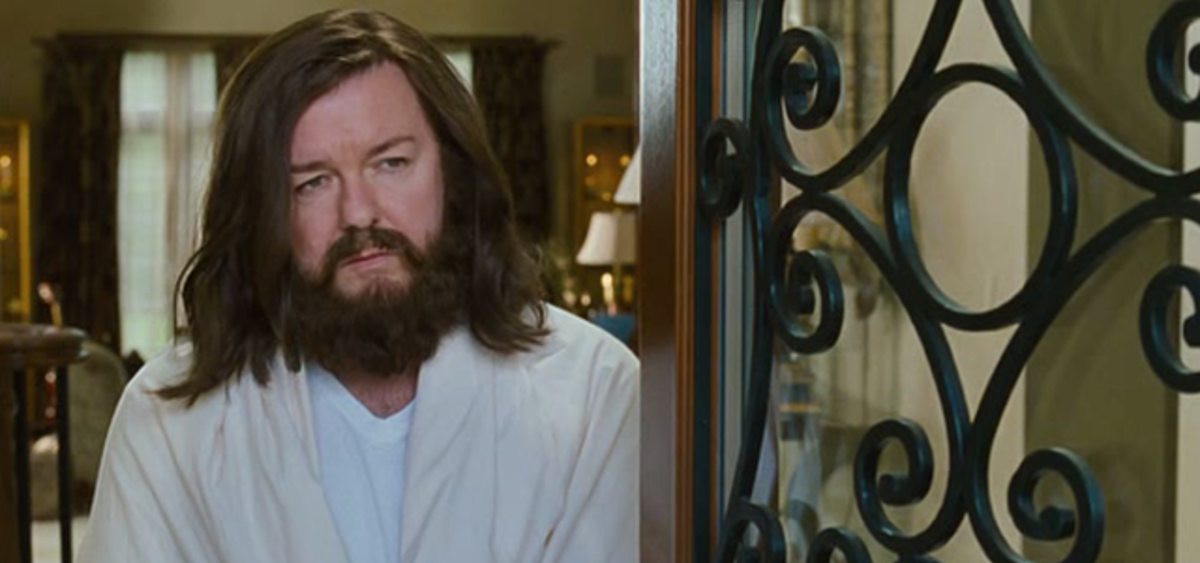The Method behind the Madness: Modern University Courses in Religion
The Duel: Princeton versus Westminster
I have spent the last several years within the mind of Sigmund Freud. I feel this way due to the many hours of preparatory readings, and years of research related to the intricacies of the study of Philosophy, and the Philosophy of Religion in detail. In association with this work, I was also exposed to that circle of intellectuals who advocate an atheistic approach to our existence, often to a captive audience of intellectuals attending advanced instruction in Religion at almost any college around today.
Your course books will center on the group of authors who consistently publish work on religion that always seek either to deny it, or explain it as a natural phenomenon that somehow must be overcome by the growth of the human experience through scientific discovery, and the continued quest of expanding inquiry that will someday resolve all issues related to our true roots; to accept a form of rationality within a physical reality of chaos as a part of our existence.
Of course these modern minds all come with the best resumes`, featuring our most advanced educators within the Ivy League. They are always specialists in cognitive studies; with leanings toward Darwinist principles first laid down in 1859. Most are authorities in the workings of the human brain, and have been recognized by the world with Pulitzer prizes, National Book awards, and other honors that automatically (it seems), bestows upon them a Moses-model authoritarian right to intellectual speculation that becomes the sola scriptura of the modern era.
The obedient student of advanced studies in religion is encouraged to accept these views. To say that there is a strong association between instruction and atheistic belief is the unspoken sin of University politics. To oppose these views in some Colleges is to be condemned to a form of isolation (or humiliation) as a part of a fringe, or not quite as perceptive as other students in recognizing higher truth. For some reason, atheism within advanced education is an aid in the process. To quote Zarathustra: “One repays a teacher badly if one remains only a pupil. And why then, should you not pluck at my laurels?” (I wonder if those laurels sit upon the brow of a skull with the words: Et in Arcadia Ego written across the forehead.) This is a form of nepotism in this area of specialization, and seems to imply a unity within so as new students begin their studies, they are introduced to the higher thoughts of atheistic beliefs. God is a creature for the ignorant masses, and associated with bible carrying people who attend lower middle class value churches on Sundays. As an advanced degree candidate, you are encouraged to drop the dependency on God, and look to science for answers to values in life, because this is the realm of the advanced mind.
Some colleges are intolerant of opposing views. I was fortunate enough to attend Universities that did not press the issue, but in general, the more prestige that a modern University embraces, the greater the pressure there is to conform to anti-religious snobbery. Seeds of doubt begin in undergraduate classes in religion (even in so called religious institutions) with higher criticism, then down the path of the History department where ancient cultures have myths that reflect a remarkable similarity to accounts in the Bible. Art History courses show us evidence of the wisdom of ancient man, and the testimony of ancient objects of worship preserved in stone. The Philosophy department plays a role in the demonstration that great pre-Christian civilizations applied their minds to explain the universe. We then travel down the road of German atheistic leadership, Wagner, Schopenhauer, Nietzsche, and others to learn our skills as a superman and grasp the will to power. We obtain our Bachelor of Arts; usually shaken in our former trust to a universe under God. But if we go on to advanced education, this is where intellectualism leaves little room for faith. The best schools in our nation harbor the elite of atheist/authors, Dawkins, Dennett, Matthews, Shermer, Pinker, Singer, Harris, etc. Their book publications reveal that they are the godfathers of the new system that you will be required to absorb. But are their views really insightful? This leads me to speculate on what Sigmund Freud would have to say about our current set of popular, public speaking, author/atheists, based upon his writings on the future of religion, his thoughts about religious origins, and the probable outcome of a discontented civilization.
Would Dr. Freud join their circle and preach the gospel of atheism or would he be against them? First, let us remember that Dr. Freud was a man who loved his family. He was forced to endure the loss of children, including a much admired daughter during his life that struck him to the core with grief. Any man, when faced with the loss of a dearly loved child, suffers as if he were struck through with a spear that is invisible to the eye but stings the soul within, and though unseen, is always there. Often, loss re-shapes the thinking of an intelligent individual, and can lead one to come closer to a faith or more distant from it.
Sigmund Freud sought an explanation of the source or instinct within that is drawn to religion, and he places hope that someday mankind would come to accept living rationally in a physical world that held no thoughts of existence beyond. If we consider the current thinking of our atheist authors and their strong advocacy of removing children from parental control for the prevention of their possible exposure to religious belief, would the father of psychoanalysis concur?
Dr. Freud points out in Chapter 10 of his work, the Future of an Illusion, (Pg.88) “That does sound splendid. A race of men that has renounced all illusions and has thus become capable of making its existence on the earth a tolerable one! But I cannot share your expectations.” He goes on to a key observation: “You indulge in the hope that generations which have not experienced the influence of religious teaching in early childhood will easily attain the wished-for primacy of the intelligence over the life of the instincts. That is surely an illusion;”
It has always amazed me how a hundred years of respect for persons wearing white laboratory coats have replaced those of over a thousand years who wore black cassocks! We treat the past with disdain, as if we have suddenly arisen from a great ignorance to a point of illumination in the human race. Our atheist friends tell us to trust the current trends over the traditional ones but this system of disbelief requires a long road of education, just as you would raise a child in religion to make their point. Dr. Freud anticipated this as well, continuing: “If I am not mistaken-one knows so little of other civilizations-there are even today peoples who do not grow up on a religious system, and they come no nearer to your ideal than the others.”
Doctor Freud then outlines the formula that an atheist must take to task. “If you wish to expel religion from our European civilization you can only do it through another system of doctrines, and from the outset this would take over all the psychological characteristics of religion, the same sanctity, rigidity and intolerance, the same prohibition of thought in self-defense.” Atheism can be very militant and intolerant of opposing views just as Freud predicted.
The truth is that the mass of humanity is not intellectual. Freud argued that there must be a fundamental revision of the relation between culture and religion. Otherwise the great mass of the uneducated and suppressed, who have every reason to be enemies of culture, upon the discovery that there is not God (and no fear of punishment) could possibly adapt a policy of killing without any hesitation. (Pg. 68-69) He is for the rigorous oppression of the dangerous masses and the most careful exclusion of all opportunities for mental awakening. But Dr. Freud suggests a course of action to avert this possibility. (Pg. 91) “When religious doctrine is divested of a primitive and infantile way of thinking, what is left is a body of ideas which science no longer contradicts and which it cannot disprove. These modifications of religious doctrine, which you have condemned as half-measures and compromises, make it possible to bridge the gap between the uneducated masses and the philosophical thinker, and to preserve the common bond between them which is so important for the protection of culture. With it you would have no need to fear that the poor man would discover that the upper strata of society “no longer believe in God”.
Today our atheists seem to believe that humanity is somehow better off without belief. Yet in case after case, when religion was replaced with a godless political system, greater horrors than any religious inspired inquisition have resulted. Communist and Nazi atrocities of the twentieth century are hard evidence that when human society is set free from guilt their capability for mass murder becomes very plain. This also occurred during a great age of industrial development that freed people from the drudgery of centuries, in an ‘enlightened’ period of education. George H. Watson, a Cambridge fellow stated in his work: Take Back the Past that: “the true symbol of the twentieth century should be a snake with its tail in its mouth.” We have traveled full circle and ended at the same socialist ideas that we already know do not work, yet we still advocate their potential.
There is no doubt that Dr. Freud was limited by the period through which he lived. He witnessed the darkness of World War 1, with all the atrocities that were a part of that Christian civil war, and the silliness from both alliances that somehow God was interested in victory for their side. The origins of that war may have been laid down during the time of Bismarck, and the ridiculous idea that leaders were endowed by God to rule their respective countries. The encouragement of this false sense of order and relationship to a creator gave confidence to such monarchs that what they decided was inspired by God, and this included hostile action.
Freud felt the pain of the human race. He was sensitive to the plight of man and was a human being in that he shared in all that was possible in life. He died at the period of the Second World War having completed a unique study of his own tradition in Judaism that attempted a rational explanation for the inexplicable and sudden rise of his culture in the ancient world. Moses and Monotheism was an interesting theory on how we came to a monotheistic faith through Jewish connections to Ancient Egypt and accepted the worship of one true God through the reign of one Egyptian King. The high priest of this faith, Moshe or Moses, was to lead the Jewish nation in this practice. Even though this investigation was stretching a point, it reveals what a deep thinker Dr. Freud really was and especially how honest his thinking was in trying to explain religious belief.
From a religious perspective, hardly anyone is aware today that most of the changes in church doctrines are of twentieth century origin. In the conservative halls of Protestantism, the twelve pamphlets circulated between 1907 to 1912 that encouraged a fundamentalist outlook on the Bible, and belief in certain doctrine spread quickly through Baptist, Presbyterian, and Methodist tradition. Pressure was applied to accept fundamentalism, and since most of these churches had no boards to handle such matters such as under Catholicism, it became majority rule. This led to various schisms and ultimately resulted in two towers of advanced learning in Biblical education, Princeton Theological Seminary, where the writings of J. Wentzel van Huyssteen deal with the uniqueness of human relations in science and theology and the more conservative Westminster Bible Seminary, just outside of Philadelphia. These are the War Colleges of the Theological front. Their work, more than any other, often determines course approaches in secular Universities when designing a course in religion.
How do you put together a modern course in religion? In general, a University instructor will have a specific goal in mind when he designs a course. He or she already has an idea of what they expect will be the conclusion, and steer the students in a certain direction. The selection of books will be modern, somewhat philosophical in their theological approach, and will tend to avoid conservative thinkers of the old world, like Augustine, Thomas Aquinas, etc. Atheists will be a part of the Curriculum, scientists who study the inner workings of the mind will also be listed. A bit of Einstein, Darwin and other great scientific minds of the recent past will be consulted to help us understand the universe and our ancestors, then more common refutations against creation science will be covered. There will be some works of psychological inquiry, Freud, Jung and William James in the classical sense; James Hillman, James Forsyth and Hick in the modern sense, and finally the Princeton Theological minds will dominate the direction that the course will pursue. By the end of the course, several students will have surrendered their belief in God. This may not have been the goal, but intellectual studies influence minds, especially those who are not too well grounded in faith or have only had a child-like exposure to religion.
The atheist authors of today hope that intellectualism will prevail, and one fine day man will exist with an atheist mindset. But what is really happening to religious belief? Is it dying? There is no doubt that there is a falling away in both Protestant and Catholic practices. Most are divided, and attendance is split between the conservative over 50s and the younger generation. The view of the membership is that the church spends too much time and money investing in building funds, missionaries, special projects, and other funds that create big bills that obligate them to pay, especially “visions” of the future. So, yes, they are leaving these traditional churches, but they are joining the mega-church movement, a new congregation that is a non-localized community church that makes little demand on membership and often serves the needs within their own group as opposed to contributions to a centralized authority. These independent church bodies have been extremely successful and in all probability will eventually dominate the old traditions barring an economic catastrophe, because they are an “arrive by automobile” congregation.
The composition and teaching within the church is bible based and non-intellectual. In fact, they do not trust scholarship, but believe in a Moses-model style of leadership with no board to control the destiny of the church, and all expository writing or sermonizing is spirit inspired and therefore infallible. So all of these efforts to trust in science are not advancing as quickly as atheists would like to believe because the audience of the intellect is small in comparison to the masses which Dr. Freud understood, and those masses are running toward non-denominationalism at an ever growing rate.
So do our Universities really diminish religious beliefs by their method of course instruction? Some colleges are very politically correct. Others are free to discriminate as they please. I knew of a student who, in the nineteen seventies, attended a major local university in the Philadelphia area. On the first day of a course, the instructor asked the class about supernatural belief. Specifically he asked (in a cynical manner) for any student who was a Catholic to reveal to the class if they believed in the doctrine of transubstantiation (that the bread and wine become the actual presence of the body and blood of Christ) during Mass. Most of the students who acknowledged that they were Catholic sheepishly refrained from responding either because they did not know their own faith well enough, did not believe in the doctrine, or, already being wise, knew it would affect their grade. The student answered the query and stated that he believed in transubstantiation. The professor proceeded to humiliate the student, getting a few laughs from the rest of the class, and clearly took offense to the oppositional opinion. The student received only a “C” for a final grade despite excellent scholarship, because in some classes, you are not allowed to disagree with the views of the professor.
In another case, a student was receiving high marks on his papers by agreeing with the views of the professor in the course. When the final “blue book” essay was given, the student decided that because he was carrying an “A” average, he would finally reveal his true feelings in response to questions on the final examination. When the final grade report was issued, he discovered that he had received a “D” for the entire course. This was impossible, due to the amount of examinations given, and the cumulative grade point average probability of outcome. I urged the student to write to the Dean, and to indicate that he had copies of all of his previous grades, also suggesting that he demand a review or inquiry to the “D” final grade report. Within a week, the Dean contacted the student and said that an “error” had been made by the Professor, and that the student would be upgraded to a “B”. The reality was it was not a clerical error! The offending professor sought out the student a few weeks later at his place of employment! She confronted him, passed a few insults about his occupation and how much his degree was obviously paying off at such a low end job in front of his co-workers, and left the store. The former student figured that the bias of the professor had been revealed as a result of the investigation by the Dean, and she had probably faced some embarrassment for being caught. The professor has assumed that the student would just take it on the chin, but because he fought for his rights, she just couldn’t let him have the satisfaction, and just had to get in that last word!
The “grade hostage” game still continues in some colleges. It is a very disturbing trend that some professors force upon their students, who helplessly, whether they disagree or not, are forced to comply with at least until they graduate.
I do not believe that we will ever be able to eliminate the problem of professors passing on their private opinions about matters of faith or politics to their students. What does need to be changed is their habit of punishing differences of opinion by issuing lower grades. This private bias is an offense against the democratic, individually free- thinking, expansive world that the University claims it supports and is a black mark on their vocation and mission. In America, we claim four freedoms; these are from fear, want, and of speech, and worship. In the halls of University influence, it is all the more important for instructors to remember these freedoms, and ensure it becomes a true part of their classroom policy.
.








